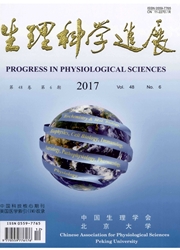

 中文摘要:
中文摘要:
自噬是生物体内普遍存在的一种降解长寿命蛋白质和细胞器的分解代谢过程。一定程度的自噬是一种内源性细胞保护机制,并参与适应性免疫反应;自噬不足或过度造成细胞稳态失调,加剧或导致细胞死亡。疾病和应激刺激可以造成心肌自噬活性明显增高,参与多种心脏疾病的发生和发展。调控心肌自噬可能成为心血管疾病和心力衰竭治疗的潜在靶点之一。本文综述心肌自噬的生理与病理生理意义及其分子机制,为心肌损伤和相关疾病防治提供新思路。
 英文摘要:
英文摘要:
Autophagy is a fundamental catabolism process widely existing in organisms, through which intracellular components such as long -lived proteins and organelles can be degraded. A certain degree of autophagy is a kind of endogenous protective mechanism, participating in adaptive immune response. Insufficient or excessive autophagy will disturb cell homeostasis, aggravate or cause cell death. Numerous studies demonstrate a marked increase in cardiac autophagic activity under a wide range of disease states and in response to diverse stimuli. Recently, despite of its dual nature, autophagy has been widely pro- moted as a potential therapeutic target for the treatment of cardiovascular disease and heart failure. In the current report, we review research progresses on the physiological and pathophysiological function and the molecular mechanism of cardiac autophgy, so as to find new methods for the heart diseases treatment.
 同期刊论文项目
同期刊论文项目
 同项目期刊论文
同项目期刊论文
 Hypoxic preconditioning induces delayed cardioprotection through P38 MAPK-mediated Calreticulin upre
Hypoxic preconditioning induces delayed cardioprotection through P38 MAPK-mediated Calreticulin upre Moderate heart dysfunction in mice with inducible cardiomyocyte-specific disruption of Serca2: a rol
Moderate heart dysfunction in mice with inducible cardiomyocyte-specific disruption of Serca2: a rol 期刊信息
期刊信息
